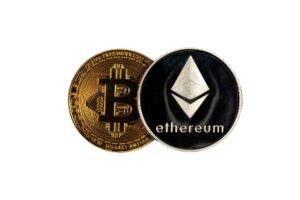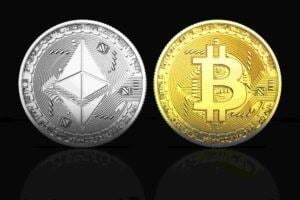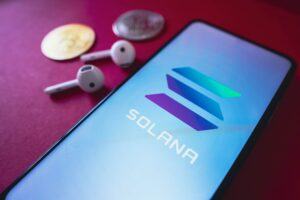Alpenglow brings an important upgrade to Solana. It is considered bullish because SOL wants to improve its technical foundations to such an extent that a massive, industrial application would be realistic.
Bitvavo, one of the leading exchanges from Europe (Netherlands) with a large selection of cryptocurrencies. PayPal deposit possible. For a limited time only: €26 bonus when you sign up via CoinPro.ch
Alpenglow: why the Upcoming Solana Update is Considered Bullish
The next major update is coming to Solana with Alpenglow. However, the smart contract platform does not expect the important software improvement for a few months. It should be ready in the first quarter of the coming calendar year 2026.
Alpenglow should play a central role in Solana’s development into a mass-capable network. The upgrade will significantly improve the technical foundations of the blockchain.
Solana’s throughput increases significantly thanks to the improvement. Currently, the blockchain allows up to 65,000 transactions per second. Thanks to Alpenglow, this value should increase to up to 100,000 transactions per second.
SOL is currently on par with VISA, which is considered the fastest credit card network in the world – also with up to 65,000 transactions per second. VISA competitor Mastercard is slower with up to 40,000 transactions per second.
In order to outshine the popular credit cards, Solana wants to crack the value of 100,000 transactions per second. According to developer information, test runs beyond this mark have already been successful.
Currently, Solana realistically only needs a scalability that allows a few thousand transactions per second. The load that the blockchain actually has to handle is between 1,000 and 4,000 transactions per second. This includes not only money transfers, but also internal data transmissions.
Solana Block Finalization Drops Drastically – What Does that Mean?
The block finalization of the Solana blockchain drops drastically thanks to Alpenglow. Currently, the network reaches a consensus after 12.8 seconds. The software update reduces this value to 0.10 to 0.15 seconds.
A rapid block finalization is considered particularly beneficial, as transactions are only considered completed when they are finalized within a block. Block finalization plays an important role in payments. The recipient ensures that the transaction really takes place and is irreversible.
SOL Network to Become Significantly more Decentralized Soon
In addition, the SOL network should soon become significantly more decentralized. Currently, it is only realistic for a few people to participate in the network as a validator. Alpenglow should open the network to a much broader mass of people.
Solana validators pay fees of 300 to 350 SOL per year. Currently, this corresponds to expenses of 62,000 to 73,000 US dollars – a costly undertaking. Alpenglow should reduce the annual expenses per validator to only 1,000 US dollars.
The falling fees could allow the network to grow significantly, which in turn would increase the security of Solana. In addition, the process of fee payment is changing. While vote fees have so far been paid per block, in the future only costs per epoch should be incurred. This frees up space in the blocks that can be used by other transactions.
That’s why the Network is Already Celebrating Alpenglow
The Solana network has already celebrated Alpenglow over the last few days, although the upgrade has not yet been installed. The users’ joy is related to a successful vote in Solana’s administration.
The vote on Alpenglow ended on September 2. The vast majority of users voted in favor of the software improvement. There is therefore certainty that Alpenglow will come.
“The governance process for SIMD-0326: Alpenglow is complete. The proposal was accepted: 98.27 percent voted yes,” wrote Solana Status on September 2. Voter turnout was 52 percent.
You are currently seeing a placeholder content of X. To access the actual content, click on the button below. Please note that data will be passed on to third-party providers.




